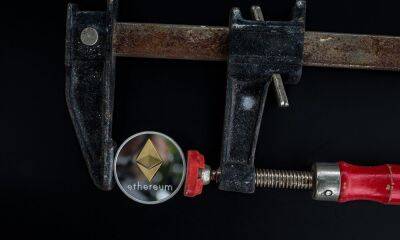Here’s Ethereum co-founder’s take on algorithmic stablecoins
Ethereum’s Vitalik Buterin has offered two thought experiments on how to establish whether an algorithmic (algo) stablecoin is feasible in the long term. On 25 May, Buterin remarked that increased examination of crypto and DeFi in the aftermath of Terra’s meltdown is “really beneficial. However, he advised against dismissing any algo-stablecoins completely.
Buterin’s comments were sparked by Terra’s UST losing its $1 peg three weeks ago, dropping its LUNA token from $77 to $0.00014. This put the Terra blockchain at risk, wiping out $42 billion from the crypto-market.
While he praised Terra’s meltdown for bringing “a higher level of scrutiny on DeFi financial mechanisms,” he dismissed the notion that automated stablecoins are defective by design. He said,
“What we need is not stablecoin boosterism or stablecoin doomerism, but rather a return to principles-based thinking. While there are plenty of automated stablecoin designs that are fundamentally flawed and doomed to collapse eventually, and plenty more that can survive theoretically but are highly risky, there are also many stablecoins that are highly robust in theory, and have survived extreme tests of crypto market conditions in practice.”
His blog focused on Reflexer’s fully Ether-collateralized RAI stablecoin in particular. RAI stablecoin is not tied to the value of fiat money and instead, employs algorithms to set an interest rate that proportionally opposes market volatility. It also motivates users to return RAI to its targeted price range.
It “exemplifies the pure ‘ideal type’ of a collateralized automated stablecoin,” according to Buterin. And, its structure also allows users to withdraw their liquidity in ETH if their faith in the stablecoin deteriorates. He
Read more on ambcrypto.com














![Bitcoin [BTC]: Assessing how deep are we into the bear market - ambcrypto.com - city Santimentthe](https://finance-news.co/storage/thumbs_400/img/2022/6/25/31161_l36j.jpg)






